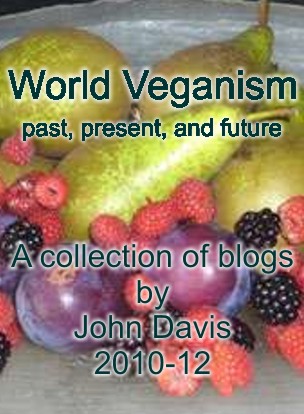Updated September 19, 2012
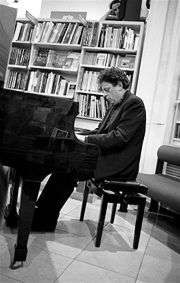 As a musician myself, I had often noticed that there seemed to be a lot of other veg musicians around. So a couple of years ago I did some historical research and put the results online. I called it 'East Meets West and West Eats Meat' which is borrowed from a 1969 Indo-Jazz album featuring Indian sitar-player Ravi Shankar and some American jazz musicians.
As a musician myself, I had often noticed that there seemed to be a lot of other veg musicians around. So a couple of years ago I did some historical research and put the results online. I called it 'East Meets West and West Eats Meat' which is borrowed from a 1969 Indo-Jazz album featuring Indian sitar-player Ravi Shankar and some American jazz musicians.
No doubt there have been countless Indian veg musicians for centuries, but it's not easy for me to find individual names before Ravi Shankar became famous in the west. If any Indians reading this can help then do get in touch.
Meanwhile our trail begins with European classical music in the 19th century, and the first name that comes up is the inevitably controversial Richard Wagner. Before anyone hits the comments button with the usual hysteria, please read the article about him on ivu.org - just click on his name from the page linked below. It shows that he was never vegetarian himself, but a lot of other musicians were because he said they should be... Whatever conclusions you come to, we can't just ignore him in this historical survey.
On the website I've tried to look at the connections between 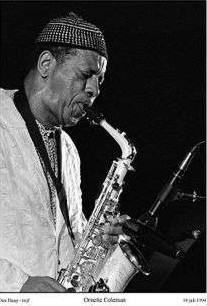 all these people - who knew who, and how they influenced each other. Later classical composers and musicians were influenced towards veg*ism by Theosophy and eastern religions, along with all the usual reasons we have today. (photo top right is American composer Philip Glass)
all these people - who knew who, and how they influenced each other. Later classical composers and musicians were influenced towards veg*ism by Theosophy and eastern religions, along with all the usual reasons we have today. (photo top right is American composer Philip Glass)
The second section deals with Jazz musicians - Texas in 1949 seems an unlikely place for a long-haired African-American vegetarian, but that's where Ornette Coleman came in, age 19. Many more 'modern' jazz veg*ns soon followed, reaching a peak in the 1960s, after which it gets increasingly difficult to separate all the musical genres, with a lot of fusions going on. (photo right: Ornette Coleman)
The third group is blues, country, rock, pop etc. - we can trace veg*ism among those musicians back to 1940s USA as well, but most of the early veg rock musicians were in England. Very soon there were huge numbers of them on both sides of the Atlantic. The biggest problem with this group is their inconsistency, many were veg*n at some point but didn't always stick to it for long. (photo right: George Harrison)
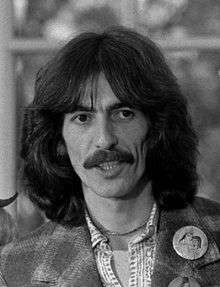 This is meant to be a historical survey, it doesn't deal much with current pop/rock stars as they come and go much too frequently - you can find plenty of those on many websites. To read all the details go to: www.ivu.org/history/music.html
This is meant to be a historical survey, it doesn't deal much with current pop/rock stars as they come and go much too frequently - you can find plenty of those on many websites. To read all the details go to: www.ivu.org/history/music.html
More below about one musician below - Cecil Sharp - veg folk hero:
One of the biggest problems in researching vegetarian history is that biographies are too often written by meat-eaters. Probably the worst example in recent years was the movie 'Gandhi' which won 8 Oscars in 1983 - in the entire 3 hour epic was there was not even the slightest hint of Gandhi's vegetarianism. Despite him stating many times that his reverence for *all* life was of central importance in everything he did.
Cecil Sharp (1859-1924) is not as famous as Gandhi course, but still suffered the same treatment. The biography, written by his friend of 22 years in 1933, about managed to mention 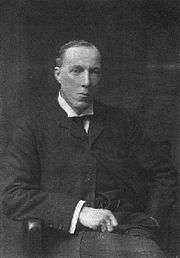 his vegetarianism twice. revised edition, re-written by his former assistant in out one of those - making it look like his vegetarianism merely an inconvenient necessity for his health. The that was deleted stated quite clearly that he was by conviction' - which makes far more sense when we what else he was involved in.
his vegetarianism twice. revised edition, re-written by his former assistant in out one of those - making it look like his vegetarianism merely an inconvenient necessity for his health. The that was deleted stated quite clearly that he was by conviction' - which makes far more sense when we what else he was involved in.
So who was Cecil Sharp? If you've ever heard folk music on either side of the Atlantic, then you'll have heard the results of his work. In the early years of the 20th century he travelled through many villages and small communities, in both England and the American Appalachian mountains, collecting traditional folk songs and dances, just in time before they died out. (the sign below right is in Hot Springs, North Carolina).
The tunes he collected initially inspired many classical composers to write pieces based on them. But they also inspired a generation of folk singers, culminating in the likes of Bob Dylan and Joan Baez in the folk boom of the 1960s. Without Cecil Sharp that might never have happened, and today the English Folk Dance and Song Society is still based at Cecil Sharp House in London.
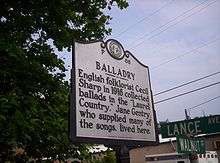 Sharp was probably vegetarian from his university days, and remained 'vegetarian by conviction' until he died. The earliest influence probably came from Richard Wagner's promotion of veg*ism, and Sharp later gave two of his children the middle names of Tristan and Isolde - from one of Wagner's operas.
Sharp was probably vegetarian from his university days, and remained 'vegetarian by conviction' until he died. The earliest influence probably came from Richard Wagner's promotion of veg*ism, and Sharp later gave two of his children the middle names of Tristan and Isolde - from one of Wagner's operas.
Then he became friends with George Bernard Shaw, probably the most famous vegetarian of the day, and he was also close to other vegetarian musicians like Percy Grainger and Gustav Holst. Sharp was involved with Theosophy, the Fabian Society and many other pro-veg oranizations - it was clearly a central part of his life and influenced everything he did. Not that you would get any idea of that from reading the biography.
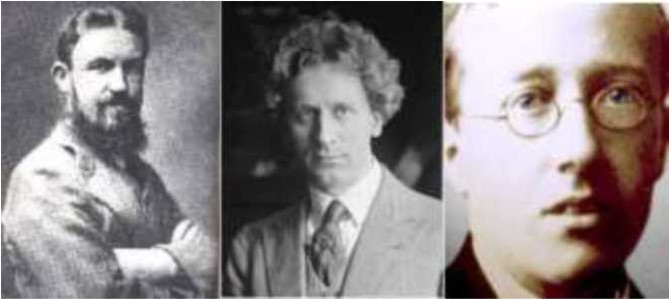
George Bernard Shaw (Irish dramatist & music critic), Percy Grainger (Australian composer), Gustav Holst (British, Swedish parents, composer) -all vegetarian, living in London and personal friends of Cecil Sharp.
For a much more detailed account of Cecil Sharp's vegetarianism see the newly expanded page at: www.ivu.org/people/music/sharp.html
 John Davis
John Davis
